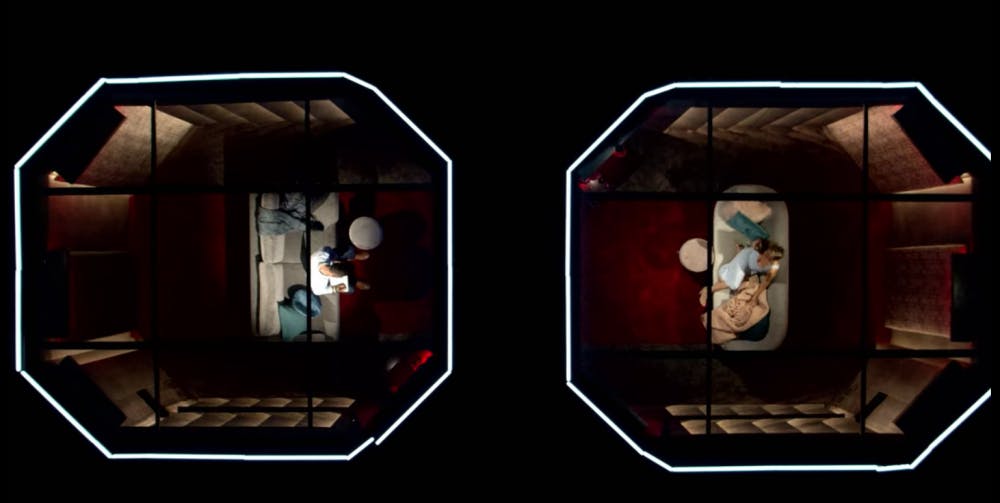By Chelsie Derman
Reviews Editor
Delving into the romantic lives of thirty men and women, Netflix’s new reality series “Love Is Blind” explores an intriguing question— can you fall in love with someone you’ve never laid eyes on?
The series, which was released on Feb. 13 and ran for three weeks, is comparable to shows like “The Bachelor,” but cast members must build intimate relationships in the span of only 10 days. The catch? Contestants can’t see each other — they can only talk.
From the start, I expected it to be another superficial dating reality show, but “Love is Blind” kept me invested in the lives of the cast members and eager to watch their relationships grow.

The show makes for an interesting social experiment. Men and women are divided into two separate living spaces, and the only way they can interact is through what is referred to as the “pods.”
One male and one female sits in their own pod — a small, enclosed room — which are connected by a thin wall. In this space, personal conversations emerge and emotional connections develop. It’s also where some end up getting down on one knee.
Although some bonds felt superficial, others were heartfelt and genuine, and I am confident that they will remain strong long after the show.
“Love Is Blind” really hits viewers with a strong dose of reality. The show examines relationships through an extrinsic standpoint and follows cast members as they travel out of their pod bubble and into the real world.
When the couples begin to live with one another, they recognize factors they were not exposed to in the pods — age, race, looks and social class. Discussing expectations and confronting differences brought unease to some contestants, which made me question the effect of societal norms on relationships.
The show posed an interesting question: Is love blind? At first, I would have said no. Now, I’m not so sure.
Although the whole idea of the show — forming a relationship with someone in 10 days and then jumping into marriage six weeks later — sounds absolutely ridiculous, it undoubtedly kept me interested and engaged. The show has an addicting quality to it.
It’s fascinating to watch two people form bonds when they have no idea what the other person looks like. Leading up to the proposal, race, appearance and social status did not matter — conversation did.
Although I was captivated by the drama, it became evident that cast members should not have been rushed into engagement when they quickly struggled to make their relationship in the real world.
“Love Is Blind” offers a new take on reality tv. The show draws viewers into a fascinating experiment that forces them to question societal expectations, widen their perspectives and question what exactly defines love.







